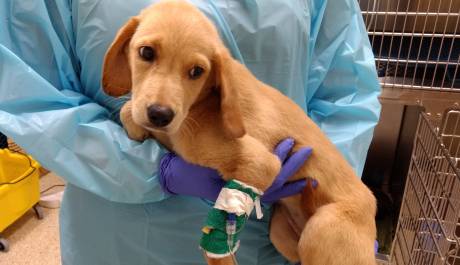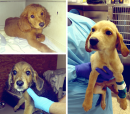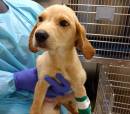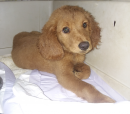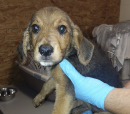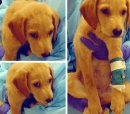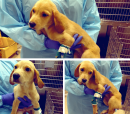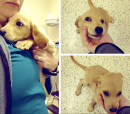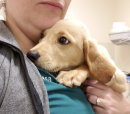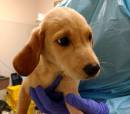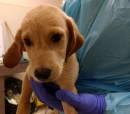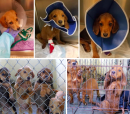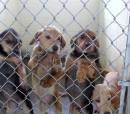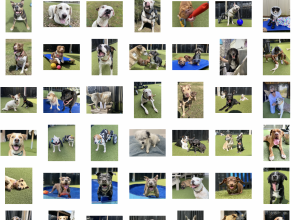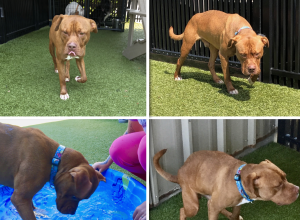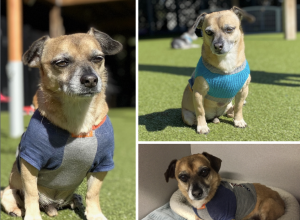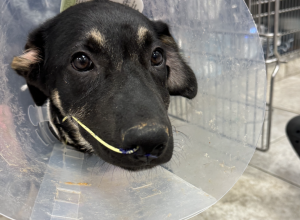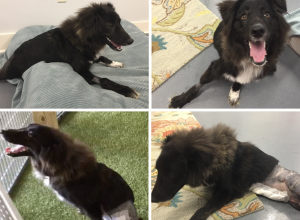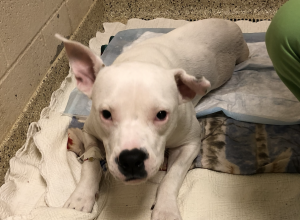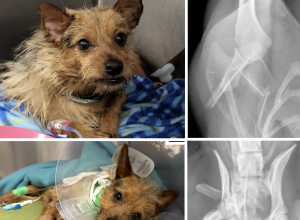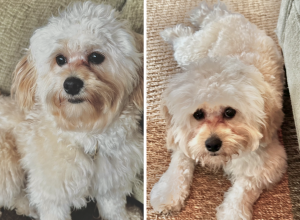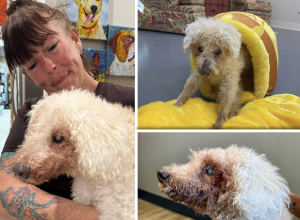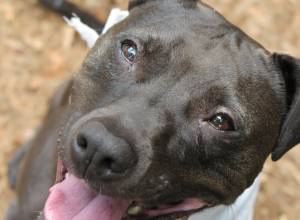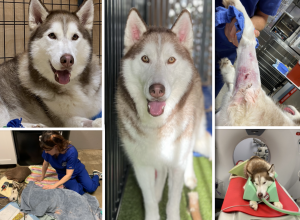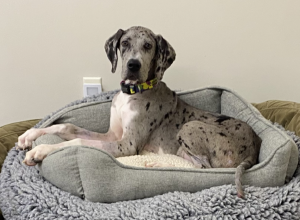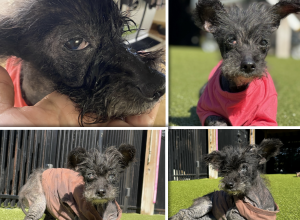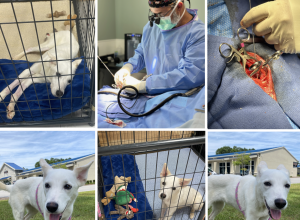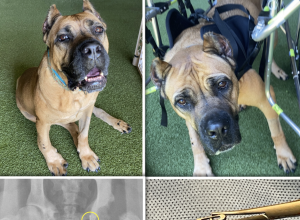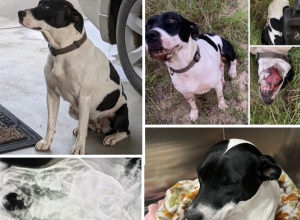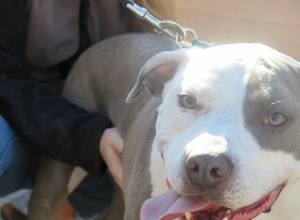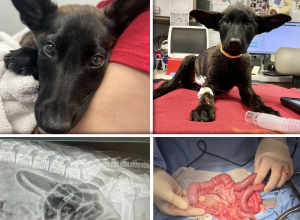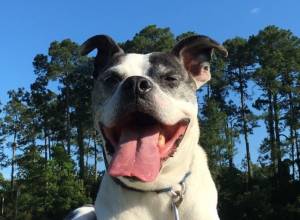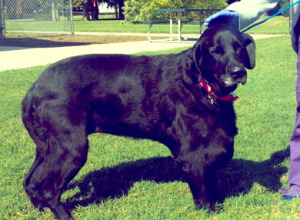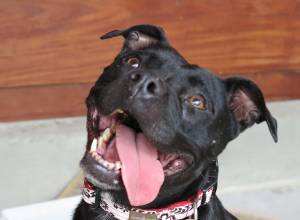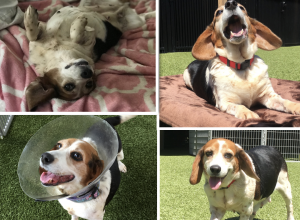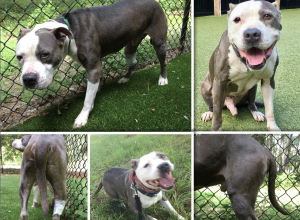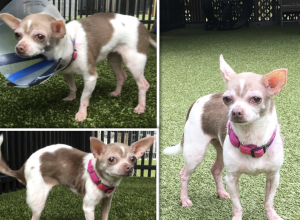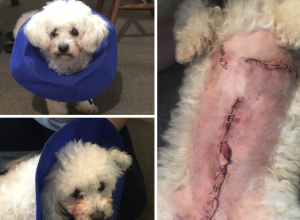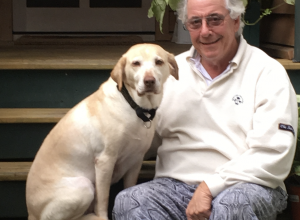It appears dear Gemma is in the Heart of Parvo right now. We have determined she was feeling so well in the beginning because she was at the very beginning of the Virus entering her system. The gastrointestinal symptoms we see now are to be expected. The good news is we started Gemma on all the proper medical care the minute she arrived with Opie and Jax. Her immune system has a chance to fight the Parvo with appropriate support.
Parvo is an opportunistic Virus. It will take hold of the sickly because the immune system is compromised. Cornell University has a great article I have put below to educate everyone on Parvo.
"Canine parvovirus can be found in almost any environment, but not every dog who comes into contact with the virus becomes infected. Several factors come into play in infection, including the immune status of the dog and the number of viruses the dog is exposed to. If the combination of factors is just right and a dog does become infected, a specific sequence of events is begun as the virus attacks the body.
Once a dog or puppy is infected, there is an incubation period of three to seven days before the onset of first symptoms. Inside the dog, CPV needs the help of rapidly dividing cells to cause disease successfully, and the virus usually begins by attacking the tonsils or lymph nodes of the throat. Once inside the lymph nodes, the virus typically invades lymphocytes (a type of white blood cell) for one or two days, creating many copies of itself. These viruses hitch a ride inside the lymphocytes, where they are sheltered from the host defenses, and enter the bloodstream. Many of these CPV-infected lymphocytes are ultimately killed, causing a reduction in the number of circulating lymphocytes, a condition called lymphopenia.
Once in the bloodstream, the virus again targets rapidly dividing cells, hitting hardest in the bone marrow and in the cells that line the walls of the small intestine. In very young dogs, CPV can also infect the heart, leading to inflammation of heart muscle, reduced function, and arrhythmias.
In the bone marrow, the virus weakens the body’s ability to protect itself by destroying young immune cells and causing a drop in the protective white blood cell count. This probably makes it significantly more accessible for the virus to invade the gastrointestinal tract, where the virus does its worst damage.
The virus causes this destruction by targeting the epithelium of the small intestine, the lining that helps to absorb nutrients and provides a crucial barrier against fluid loss and bacterial invasion from the gut into the body. The cells that make up the epithelial surface are short-lived and are replaced continually by new cells born in the rapidly-dividing areas known as the crypts of Lieberkühn. The virus invades these crypts where new epithelial cells are born and disable the body’s ability to replenish the intestinal surface.
By preventing the replacement of old and dying cells with fresh new cells, the virus leaves the intestinal surface unable to adequately absorb nutrients, prevent fluid loss into the stool, or prevent bacteria from moving from the gut into the body. Severe diarrhea and nausea are the initial results, but eventually, the intestinal surface can become so damaged that it begins to break down, and the bacteria that are typically confined to the gut penetrate the intestine walls and enter the bloodstream. This causes both significant fluid loss from diarrhea and widespread infection inside the body. To make matters worse, the body’s immune system is already weakened, as its ability to produce new white blood cells to combat the invasion of CPV has hampered infection into the bone marrow. CPV is not always fatal, but when it does kill, death is as a result of either dehydration and shock, along with the effects of septic toxins produced by the intestinal bacteria roaming throughout the bloodstream."
Don't fool around with this Virus if you don't have the means financially to fight and support your dog when they get it. New puppies should never be taken to public dog parks or common areas until they have been thoroughly vaccinated. The risk is too great until their body has the proper vaccination to fight this. It is no guarantee your puppy will not get parvo even after the vaccination, but their chances are better with it.
If you choose not to vaccinate your puppies, then you need the financial means and knowledge to know how to pull them through if and when they get the virus. There are too many cases coming to light because so many backyard breeders are not vaccinating their puppies and are then taking them out into the public to sell. Once cute puppy that is shedding the Parvo Virus can kill thousands of unknowing innocent puppies it exposes to the Virus.
Meanwhile, dear Gemma is fighting her own battle. She has been in ICU for six days. Gemma's white blood count dropped dramatically this morning. The next two days are critical for her. We lost Opie and Jax, but we are doing everything possible to pull sweet Gemma through this horrible Virus. Thanks for caring and supporting our efforts.
Your private information is important to us. We have a lot of spam blockers in place and do everything we can to protect your privacy. We NEVER give out private information to anyone and do not share information with any companies for that reason. If you find that our e-mails are ending up in your spam folder, you can add our address to your contacts, and that usually solves the problem. If you are still having a problem or are not getting our e-mails, please drop us a note, and we will look further into the issue.

